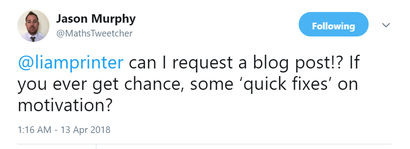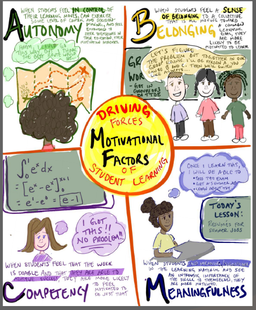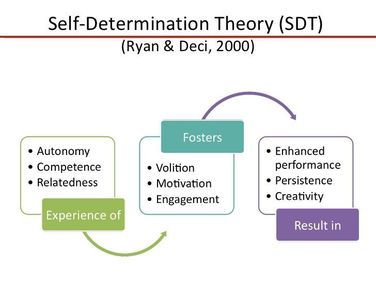
What does this do to us as teachers? Quite simply, it makes us feel great. We feel good at our jobs, we feel like our kids are progressing, we feel like we chose the right career, we feel like we are making a difference, we feel motivated.
But how do we achieve motivated learners in our classes? Are there any ‘quick fixes’ for motivation we can apply straight away? Thank you to @MathsTweetcher for this question and the inspiration behind this blog.
 Bondie & Zusho 2018
Bondie & Zusho 2018 This 2006 study, for example, looked at the motivational pull of videogames and found that playing videogames clearly met the 3 needs of SDT and henceforth, why so many people are so motivated to keep playing them. Players have complete autonomy in where and what they do in any given game; there is a strong sense of relatedness as gamers have an immediate connection to a community where they can share their passion; and gamers feel a great element of competence while playing as they pass from one level to the next.

Autonomy: Can I adapt the activity to allow students more choice or self-direction? You can still set the task but by allowing them different ways to show their learning and fulfil the objectives, you are heightening their level of autonomy and creativity, and you are on your way to a more motivated class.
Relatedness: Can I re-plan this so students have a greater sense of belonging and togetherness? Perhaps students can attempt a task in pairs rather than individually? Can students or (you as the teacher) share a personal anecdote connected to the lesson? Maybe there is an opportunity for you as their teacher to ‘get among them’ and do the task with them? All this improves relationships and leads towards more ‘relatedness’ in the class.
Competence: Is the activity going to help students feel like they can ‘do’ it? Is there a way to modify the activity so students can show off what they’ve just learned to each other? Another very simple way to augment students’ feelings of competence is just to recognize, highlight and share something good you see in the class, something that demonstrates understanding of the concepts. By explicitly highlighting successes and learning, students feel like they ‘are getting it’, they feel more competent.
Yes, building self-determined, highly motivated learners, can be a challenge but by making small adjustments to our lesson planning using SDT and creating an ‘ARC’ (Autonomy, Relatedness, Competence) in our classes we can at least help students to enjoy and engage in the lesson more, even if the content or subject matter is not of particular interest to them. If we want engaged, smiling, inquiring students who are achieving their potential and learning, its time we concentrated more on ‘motivating’ and less on ‘laminating’.
Please share your comments and whether you have any activities you feel already have students on an upwards ‘ARC’ towards motivation.

 RSS Feed
RSS Feed